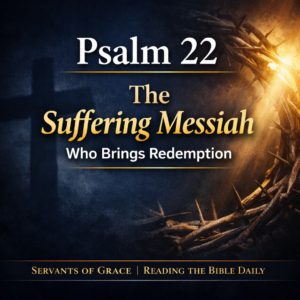⏱️ Estimated Reading Time: 6 min read
I am most definitely not a fisherman. I subscribe to the old saying, “There is a fine line between fishing and standing on the shore like an idiot.” So, maybe I am not the one to use a fishing illustration to begin. However, there is something that even I have picked up about fishing: fishers tend to enjoy catching bigger fish. The running joke is that they like to embellish the size of their fish. In your mind’s eye, undoubtedly, you can see the image of a fisher standing in front of a camera with his hands separated by some distance relative to or not even close to the size of the fish they caught. They like to feel that the fish they caught is bigger than someone else, maybe even the biggest fish. My point is not to encourage lying, nor to promote fishing, but to point out, we are frequent participants in the game of comparison. Even in something as innocuous as fishing, rather than just enjoying it (is that really possible?), we are drawn into a community for comparison.
I have already continued longer in the fishing illustration than I am qualified, so let me cast our nets in the direction of the focus of this article: suffering well in community with fellow Christians. The premise of this article is that we are often drawn in one of two directions in our suffering. Either we lean in the direction that says my suffering is worse than someone else’s, or we go the other way and say, my suffering is nothing compared to their suffering. We may easily dismiss the former as a self-centered look at suffering that does not consider others before ourselves (Phil. 2:1-4). The latter does not really seem to help us anymore, despite how unselfish it sounds. For you see, God is a creative God who can and does design a trial that is fit for us, for right now. Too much focus on self-pity or too much emphasis on putting your suffering in context with other’s suffering risks missing the discipleship lesson that suffering was designed to be by God. To suffer well in community requires us to pursue a discipleship focus of suffering that is unique to our own lives and characteristics.
Trials are God’s Number One Discipleship Tool
James 1:2 tells us to count it all joy when we face trials of many kinds. He does not tell us this so that we will be those happy Christians who go around with a smile on our face no matter what. You have probably seen them and come away with a mixture of inspiration and skepticism that wonders what they are really like when no one is watching. But the truth is that James tells us that God has a distinct purpose for the trials. He tells us that trials are meant to test our faith so that we may become mature and complete.
I have put it this way; trials are God’s #1 discipleship tool. I have read enough stories and experienced things in my own life to know that I learn best from applying biblical truth to the trials of life. I read stories in the Bible about God providing, but then I was out of work with a family to provide for, and I had to apply that knowledge to that specific situation and had to rehearse truth in the middle of the night when the fears would hit. On the other side of it, I could look back and say, wow, God really does provide. It was through the trial that the truth (God provides) was driven home for me.
Since trials are God’s #1 discipleship tool, we should expect that God, who created such a variety in the world, could design a unique discipleship plan for all of His children. This means that the trial I face is designed by God for me. The trial you face are designed by God for you. It benefits me absolutely nothing to look at my trial and think that it is more significant than yours and feel sorry for myself. It also benefits me absolutely nothing to see your trial as bigger than mine and that I have nothing to complain about. It does help me greatly if I see the trial as God’s work in my life so that I will move one step further to the mature and complete destination God has in store for me in Christ. In a community, either local or global, there will always be someone who has suffered more or suffered less. But to suffer well in community with one another, we must steer away from the comparison trap and seek God for wisdom in the trial, to see the discipleship lesson God has for us.
Practical Guidance to Learn Discipleship Lessons from Suffering
First, acknowledge to God what you feel about the trial. We do so, not in a whiny complaining way, but in a way that echoes the words of Hebrews 12, which tell us that no discipline feels good at the time. A quick scan of the Psalms will show you that it is not wrong to tell God that the trial is painful and, hopefully, not a long-term resident. By this, we are not demanding that God remove it. We might request that God remove it, as Paul did in 2 Cor. 12, but it is merely acknowledging that it hurts.
Second, acknowledge to others how you feel about the trial. In this, you want to be careful that it is someone who you can trust with your trial. Usually, it is not a good idea to tell a large group of people or share it all over social media. Please look for a few people who are close enough to you and discerning enough to keep it confidential. In telling someone else, you are giving opportunities for suffering well in community. It gives them a chance to walk with you, and it gives you the chance to remove a barrier of self-protection.
Third, place your suffering in the context of the Scriptures, not in a comparable way as to find someone who suffered worse. Don’t just turn to Job and say, thankfully, my trial is not as bad as his. Rather, look for others who suffered a similar trial and saw God answer. Look for lessons that they learned that can connect positively to your story and increase your faith in God.
Lastly, share what you learn with others along the way. It may be that you come across someone right away, or it may be years down the road. But 2 Corinthians 1:3-7 tells us that God comforts us so that we can comfort others. So, take what you learn and share it in the community of faith. God may use you to comfort, encourage, edify, and instruct others in the truth of God’s work through suffering. In doing this, we will successfully suffer well in community.




